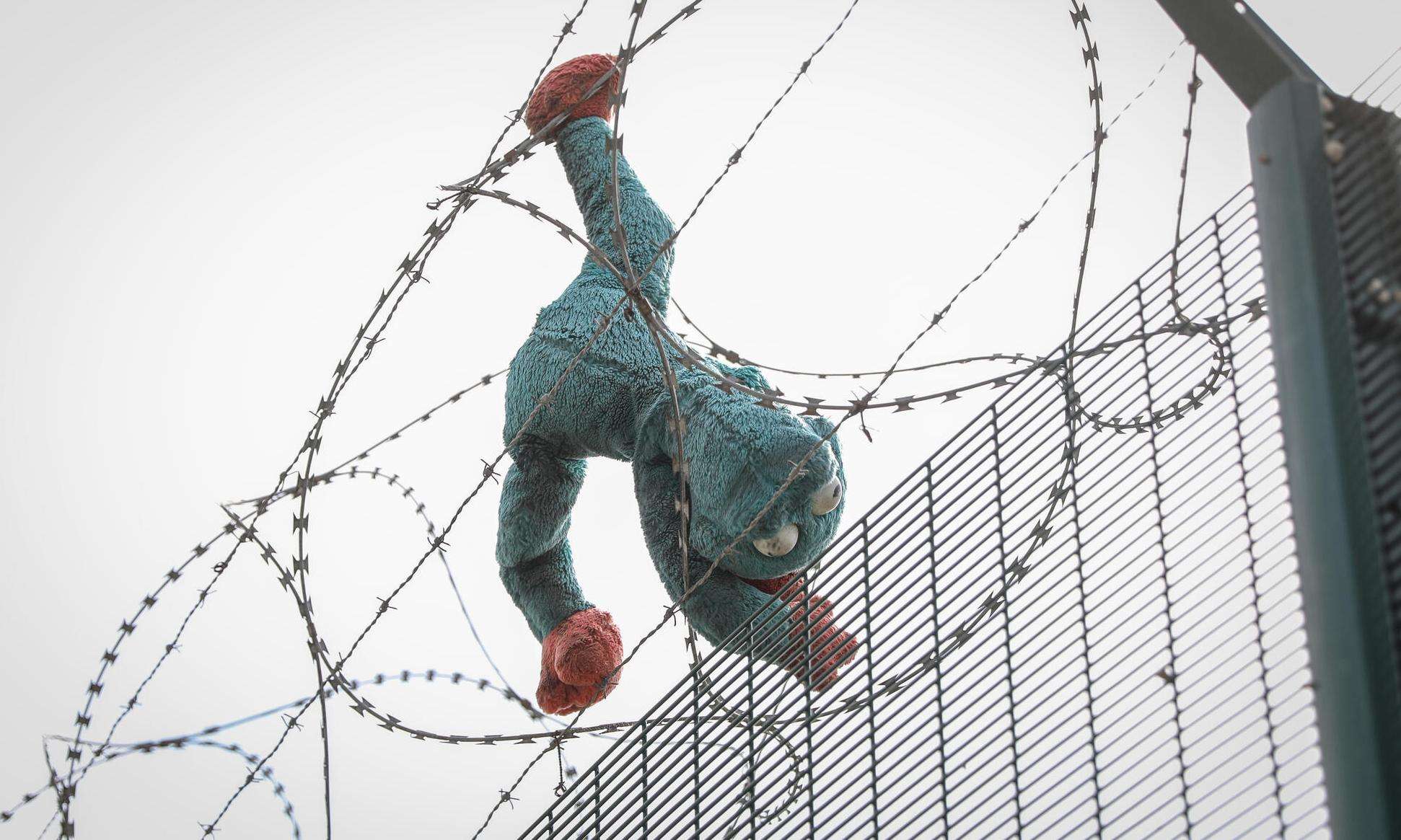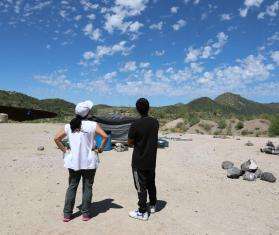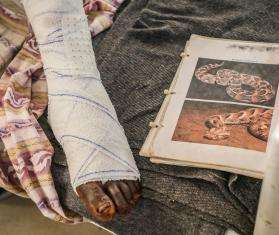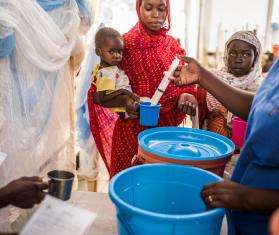Since July 2023, Doctors Without Borders/Médecins Sans Frontières (MSF) has been providing medical, psychological, and social support to unaccompanied minors in transit in a day center in Calais, France.
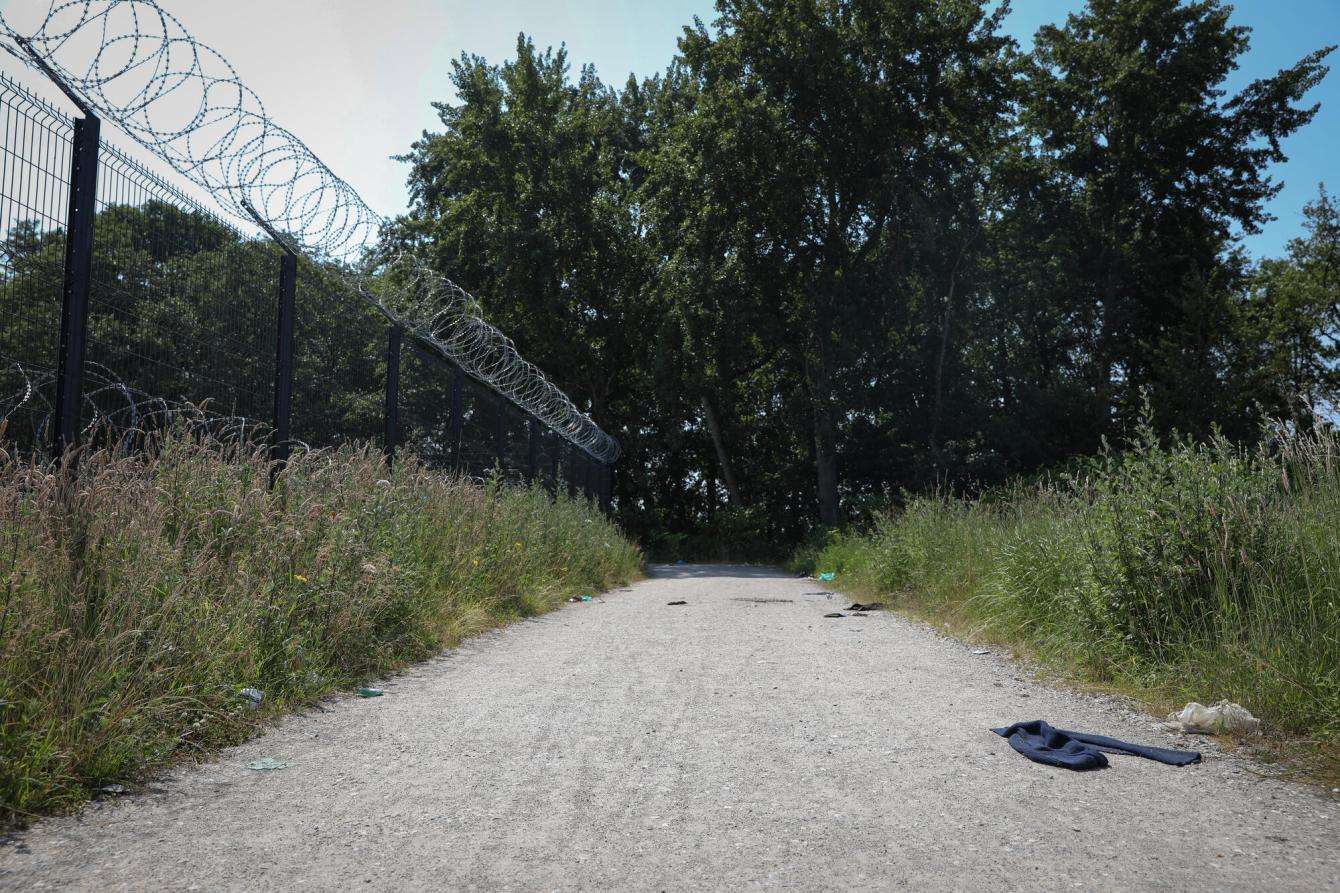
Constant and normalized violence
Since the center opened, MSF has received 180 young people, mainly from Sudan, Afghanistan, and Syria. More than half of them reported being victims of violence along their migration route, whether in transit countries such as Libya or Tunisia, or in France. More than a third of the young people’s testimonies referred to ill treatment and violence by the police in France, particularly in Calais.
According to the young people interviewed, violence mainly occurs during operations to dismantle migrants’ dwellings and during attempts to cross the English Channel by boat or truck. The types of physical violence most frequently reported were kicks, punches, blows with truncheons causing skin lesions, and the use of tear gas at eye level and on personal belongings. These abuses often occur when volunteers and associations are not on site to help migrants, asylum seekers, and refugees.
Far from the camps, at the MSF day center, young people find a place where they can be listened to and feel welcomed, a place where the bond of trust created by the team allows them to speak freely.
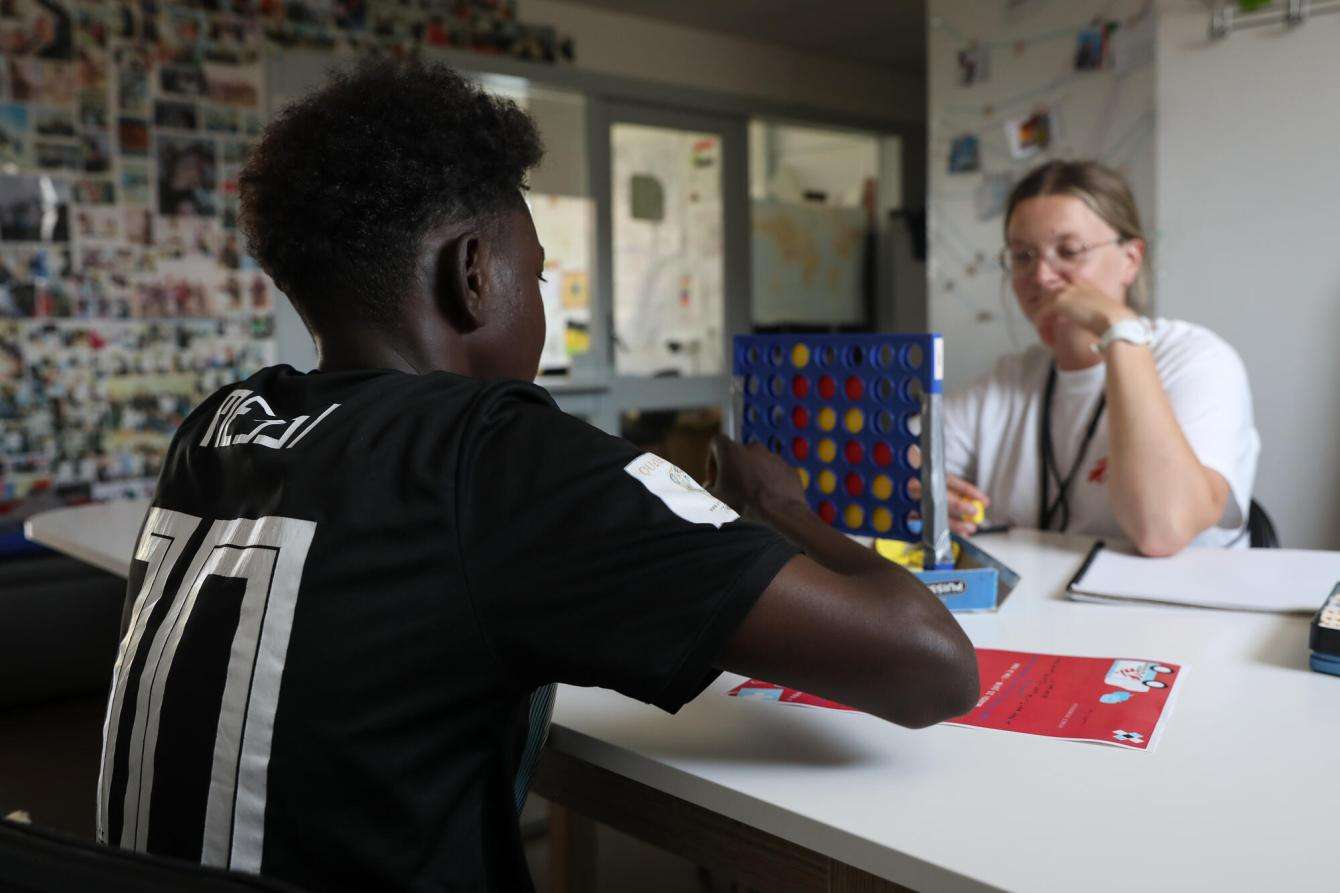
“Sometimes they check that there are no cameras, and they take us to places out of sight to beat us up,” said Ahmed*, a 15-year-old Sudanese boy who was admitted to the MSF center in February “The last time this happened to me, I was with a friend. The police took us to a van and beat us with truncheons. I was beaten so badly that I was bleeding.” When offered the chance to file a complaint, he refused for fear of endangering himself and the possible repercussions if he were to encounter the same police officers again.
“Young people who migrate alone experience exile and violence at a particular time in their development, that of adolescence,” explained Chloé Hannebouw, psychologist for MSF in Calais. “Exile also means experiencing or witnessing traumatic events and violence that often goes unpunished. It becomes difficult and dangerous to trust others.
Violence on top of pre-existing trauma
Since the reopening of the MSF project in Calais in April 2023, 82 percent of people seen for medical consultations and questioned about violence by MSF’s medical team have said they were subjected to ill-treatment, torture, and inhuman and degrading acts, particularly in Libya, Tunisia, and on the Balkans route.
“During interviews, young people can talk about terrible experiences of violence, detention, and sometimes torture,” said Hannebouw. “Some young people also tend to compare the violence they suffered in Libya with the complicated living conditions in Calais. This comparison often leads them to minimize the harshness of their current situation in view of the extreme violence experienced over there.”
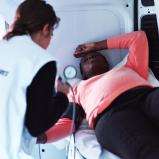
New report documents abuse of migrants by French authorities
Read moreSince the start of operations, MSF psychologist have carried out 152 consultations with minors, either unaccompanied or accompanied by their families. Among the most frequent symptoms experienced by young patients are anxious rumination, nightmares, insomnia, and a feeling of powerlessness or inability to project themselves in the future. Some also mention suicidal impulses, particularly when they have been through particularly traumatic experiences or extreme violence.
“This repeated physical and psychological violence illustrates the human cost that France and the UK are ready to pay to secure their common border,” said Feyrouz Lajili, coordinator of MSF’s project in Calais. “A generalized normalization of violence has taken hold throughout Europe. Calais is just one of many laboratories for the deterrence policies pursued by the European Union.”
*Name changed to protect privacy.
